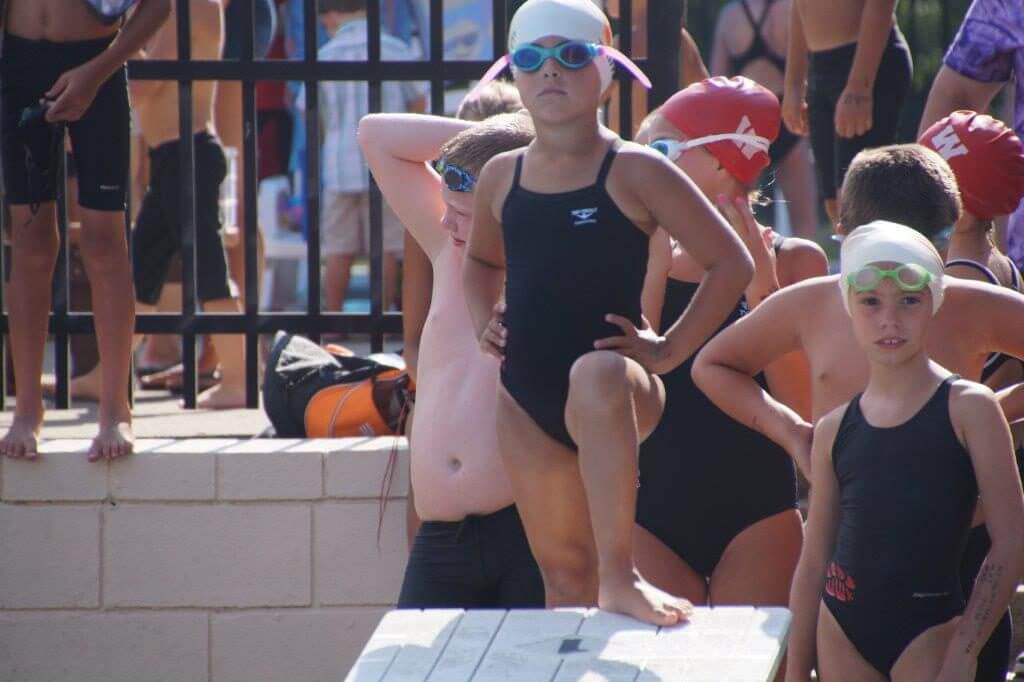Guest Editorial: The Science Behind Specialization – When Should Young Swimmers Focus on Specific Events?

The Science Behind Specialization: When Should Young Swimmers Focus on Specific Events?
By Dr. Donald Lee Aivalotis, II – Guest Editorial
newswimmer.com
As young swimmers progress through their training, a common question arises: when should they begin specializing in specific strokes or events? While some athletes may naturally gravitate toward certain events early in their development, the decision of when to specialize carries significant long-term implications for performance, injury prevention, and overall athlete development.
The Benefits of Early Multi-Event Training
Early in a swimmer’s career (typically ages 8-12), coaches and sports scientists emphasize the importance of broad-based training. This period, often referred to as the “sampling phase,” allows young swimmers to experiment with all four strokes—freestyle, backstroke, breaststroke, and butterfly—as well as a variety of distances. Research has shown that engaging in a wide range of events can lead to long-term athletic success, both physically and mentally.
Physical Benefits:
- Balanced Muscle Development: Different strokes activate various muscle groups. Freestyle and backstroke, for example, are heavily reliant on the shoulders, while breaststroke engages the legs and core differently. This broad engagement ensures a more balanced development of strength, flexibility, and coordination, reducing the risk of overuse injuries.
- Improved Motor Skills: Learning multiple strokes and distances improves general motor learning, which can translate into better technique in the future. Swimmers who are well-versed in multiple strokes may develop better overall water awareness and adaptability, improving their potential in later specialization.
Psychological Benefits:
- Avoiding Burnout: Introducing swimmers to a variety of events helps to keep their training fresh and exciting. Focusing too early on a single stroke or event can lead to mental fatigue, burnout, and, in some cases, drop-out.
- Enhancing Enjoyment: Variety can keep young swimmers engaged, as they won’t feel pigeonholed into one event. Enjoyment in sport at a young age is critical for long-term retention and success.
When Specialization May Become Beneficial
Specialization typically occurs between the ages of 14-16 for most swimmers. At this point, many athletes have developed sufficient skill, endurance, and strength to excel in specific events, and their unique physiology (e.g., body type, muscle composition) may begin to show what they are naturally predisposed to succeed in.
Scientific and Developmental Indicators of Readiness:
- Physical Maturity: As swimmers enter puberty, their bodies begin to change, potentially favoring certain strokes or distances. For example, swimmers with longer limbs may excel in freestyle or backstroke, while shorter, more compact swimmers may thrive in breaststroke.
- Event Performance Trends: By this age, swimmers and coaches can assess race data to identify where consistent success is occurring. Are certain strokes and distances yielding better results? These trends can offer insight into where specialization may lead to greater success.
- Training Focus: Around this time, swimmers may also begin to focus more on the fine-tuning of specific skills, such as stroke technique or starts and turns, to maximize their potential in specialized events.
Risks of Early Specialization
While some athletes may excel with early specialization (typically those with elite natural ability in specific events), studies show that too early a focus can lead to physical and psychological drawbacks.
Physical Risks:
- Overuse Injuries: Specializing too early, particularly before physical maturity, can lead to overuse injuries due to repetitive movements. Swimmers who specialize in breaststroke, for example, may develop knee or hip injuries from the unique motion required for that stroke.
- Imbalanced Development: Focusing solely on one stroke or event can limit full body development. A swimmer who specializes in sprint freestyle, for instance, may not develop the endurance needed for longer races or the muscle balance required for other strokes.
Mental and Emotional Risks:
- Burnout: As noted earlier, focusing on one event at a young age can lead to burnout. A swimmer may feel immense pressure to perform in that one event, losing sight of the fun and enjoyment that swimming offers.
- Plateauing: Swimmers who specialize too early may plateau in their performance. Once they’ve maxed out their potential in a specific event, they may find it challenging to transition to other events where they lack foundational training.
Optimal Timeline for Specialization
The American Academy of Pediatrics and USA Swimming both recommend against early specialization. Studies support the idea that delaying specialization until at least mid adolescence allows for greater athletic development, more well-rounded swimmers, and reduced risk of injury and burnout. Most top-level swimmers—including Olympians—did not specialize until later in their careers, allowing them to build a solid foundation across all strokes and distances.
Patience is Key
For young swimmers, the key to long-term success lies in delaying specialization and allowing for broad-based development. By embracing all strokes and distances during the early years, swimmers build a well-rounded skill set that sets them up for success in whatever event they eventually choose to focus on. Coaches, parents, and swimmers themselves should remember that rushing the process can have detrimental effects, and a patient, holistic approach to training will yield better long-term results.
Encouraging younger athletes to explore different events while providing balanced training will help prevent burnout, reduce injury risk, and give them the best chance to achieve their highest potential.
Sources:
- American Academy of Pediatrics, “Sports Specialization and Risk of Injury.” • USA Swimming, “When Should Swimmers Specialize?”
- Journal of Sports Science & Medicine, “The Effects of Early Specialization on Long Term Athletic Success.”



